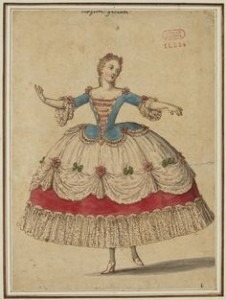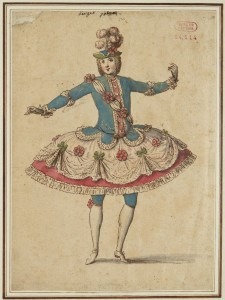 “Minors of the Majors” invites you to discover compositions by the great classical composers that for one reason or another have not reached the musical mainstream. Please enjoy, and keep listening!
“Minors of the Majors” invites you to discover compositions by the great classical composers that for one reason or another have not reached the musical mainstream. Please enjoy, and keep listening!
After crisscrossing Europe in an almost desperate search for gainful employment, Wolfgang Amadeus Mozart was eventually appointed official court composer in Vienna. The director of the court’s financial department explained that the appointment was made “simply in view of the fact that such a rare genius in the field of music should not have to seek his bread and butter in foreign countries.” The court did not ask Mozart to write operas, symphonies or chamber music, but merely required him to compose dance music for the court balls. Mozart took these commissions very seriously, but then he had already written a huge number of dances for other occasions and locals. In 1778, for example, Mozart revisited Paris and attempted to obtain an opera commission. As usual, his appeal was not successful, however, the influential dancer and choreographer Jean-Georges Noverre asked him to compose music for a ballet.
 Les petits riens (The Little Nothings) was to be danced as an interlude to a new opera by Niccolò Piccinni, and Mozart alongside a couple of other composers went to work. “To this day, we are not quite sure which of the 20 pieces Mozart did not write, but we know with certainty which ones he did compose.” Sensibly, present recordings only include the 12 dances securely attributed to Mozart! It all kicked off at the Academie Royale de Music in Paris on 11 June 1778, but regrettably, the work only received a total of six performances. Pretty depressing all around, Mozart received no further commissions, and for some reason Noverre forgot to pay him as well. To add insult to injury, Noverre even put his own name to the ballet music! The score was thought lost, but fortuitously rediscovered in the Paris Opera archives in the late 19th century.
Les petits riens (The Little Nothings) was to be danced as an interlude to a new opera by Niccolò Piccinni, and Mozart alongside a couple of other composers went to work. “To this day, we are not quite sure which of the 20 pieces Mozart did not write, but we know with certainty which ones he did compose.” Sensibly, present recordings only include the 12 dances securely attributed to Mozart! It all kicked off at the Academie Royale de Music in Paris on 11 June 1778, but regrettably, the work only received a total of six performances. Pretty depressing all around, Mozart received no further commissions, and for some reason Noverre forgot to pay him as well. To add insult to injury, Noverre even put his own name to the ballet music! The score was thought lost, but fortuitously rediscovered in the Paris Opera archives in the late 19th century.
Wolfgang Amadeus Mozart: Les petits riens (The Small Things), K. 299b
You May Also Like
- Minors of the Majors
Sergei Rachmaninoff: Suite in D minor In 2002, scholars found an unknown four-movement composition by Rachmaninoff in the depths of the Glinka Museum Archives in Moscow. - Minors of the Majors
Modest Mussorgsky: Dawn on the Moscow River Impoverished and evicted from his flat for failure to pay rent, Modest Mussorgsky once again sought refuge in the bottle. - Minors of the Majors
Jean Sibelius: Ödlan (The Lizard) Starting in 1898, Jean Sibelius regularly wrote incidental music to accompany productions of staged drama. - Minors of the Majors
Claude Debussy: L’enfant prodigue One of Claude Debussy’s earliest large works, L’enfant prodigue (The Prodigal Son) won first prize in the “Prix de Rome” competition in 1884.
More Anecdotes
- Bach Babies in Music
Regina Susanna Bach (1742-1809) Learn about Bach's youngest surviving child - Bach Babies in Music
Johanna Carolina Bach (1737-81) Discover how family and crisis intersected in Bach's world - Bach Babies in Music
Johann Christian Bach (1735-1782) From Soho to the royal court: Johann Christian Bach's London success story - A Tour of Boston, 1924
Vernon Duke’s Homage to Boston Listen to pianist Scott Dunn bring this musical postcard to life
